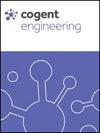Educational technology: Exploring the convergence of technology and pedagogy through mobility, interactivity, AI, and learning tools
IF 2.5
Q2 ENGINEERING, MULTIDISCIPLINARY
引用次数: 0
Abstract
Abstract Efforts at the intersection of technology and pedagogy converge upon four pivotal axes that collectively delineate the future educational landscape. These axes, namely mobility, interactivity, artificial intelligence (AI), and technological learning tools like games and augmented reality, encompass the domain of educational transformation. The fusion of these elements necessitates the development of a mobile-interactive paradigm that duly acknowledes the learner’s temporal availability and optimal convenience. Currently, technology is already integrated into the educational realm. However, its diverse manifestations across various contexts underscore the urgent need to integrate and amalgamate these facets within pedagogical frameworks that prioritize students’ erudition. This research undertakes a comprehensive analysis of multifarious technological modalities and puts forth a harmonized model that could furnish a foundational structure for classroom instruction. Central to this paradigm is the recognition of the paramountcy of intelligent tutoring systems, which serve to democratize access to tutoring. By imbuing these systems with advanced AI capabilities, learners can benefit from personalized and adaptive support, irrespective of their location or socioeconomic background. Furthermore, the significance of conducting technological experiments cannot be understated, as it allows for the exploration of new frontiers and the subsequent application of findings to “teaching-learning models.” These models harness a diverse range of interaction patterns to enhance the educational experience. By embracing these transformative elements, educational frameworks can better cater to the evolving needs of learners, while intelligent tutoring systems and ongoing technological experimentation serve as cornerstones in advancing the educational journey.教育技术:通过移动性、互动性、人工智能和学习工具探索技术与教学法的融合
摘要 技术与教学法的交汇点集中在四个关键轴心上,它们共同勾勒出未来的教育图景。这些轴心,即移动性、互动性、人工智能(AI)以及游戏和增强现实等技术学习工具,涵盖了教育变革的各个领域。这些要素的融合要求开发一种移动互动模式,充分考虑到学习者的时间可用性和最佳便利性。目前,技术已经融入教育领域。然而,技术在不同背景下的不同表现形式,凸显了在以学生博学为先的教学框架内整合和融合这些方面的迫切需要。本研究对多种技术模式进行了全面分析,并提出了一个可为课堂教学提供基础结构的统一模式。这一模式的核心是认识到智能辅导系统的重要性,它有助于实现辅导的民主化。通过赋予这些系统先进的人工智能能力,学习者可以从个性化和适应性支持中获益,而不论其所处位置或社会经济背景如何。此外,进行技术实验的意义也不容低估,因为它可以探索新的前沿领域,并将研究成果应用于 "教学-学习模型"。这些模式利用各种不同的互动模式来增强教育体验。通过拥抱这些变革元素,教育框架可以更好地满足学习者不断变化的需求,而智能辅导系统和持续的技术实验则是推进教育之旅的基石。
本文章由计算机程序翻译,如有差异,请以英文原文为准。
求助全文
约1分钟内获得全文
求助全文
来源期刊

Cogent Engineering
ENGINEERING, MULTIDISCIPLINARY-
CiteScore
4.00
自引率
5.30%
发文量
213
审稿时长
13 weeks
期刊介绍:
One of the largest, multidisciplinary open access engineering journals of peer-reviewed research, Cogent Engineering, part of the Taylor & Francis Group, covers all areas of engineering and technology, from chemical engineering to computer science, and mechanical to materials engineering. Cogent Engineering encourages interdisciplinary research and also accepts negative results, software article, replication studies and reviews.
 求助内容:
求助内容: 应助结果提醒方式:
应助结果提醒方式:


